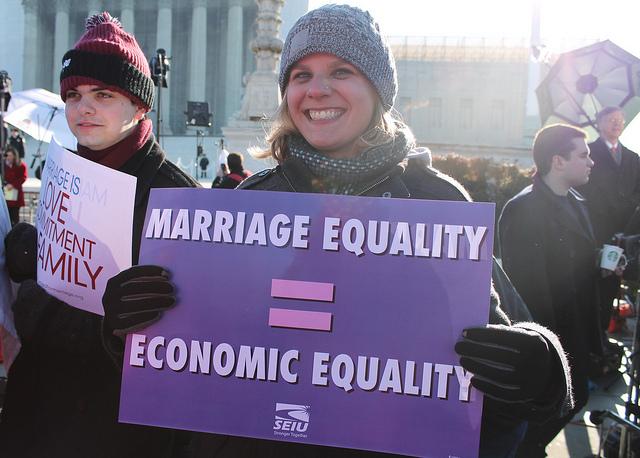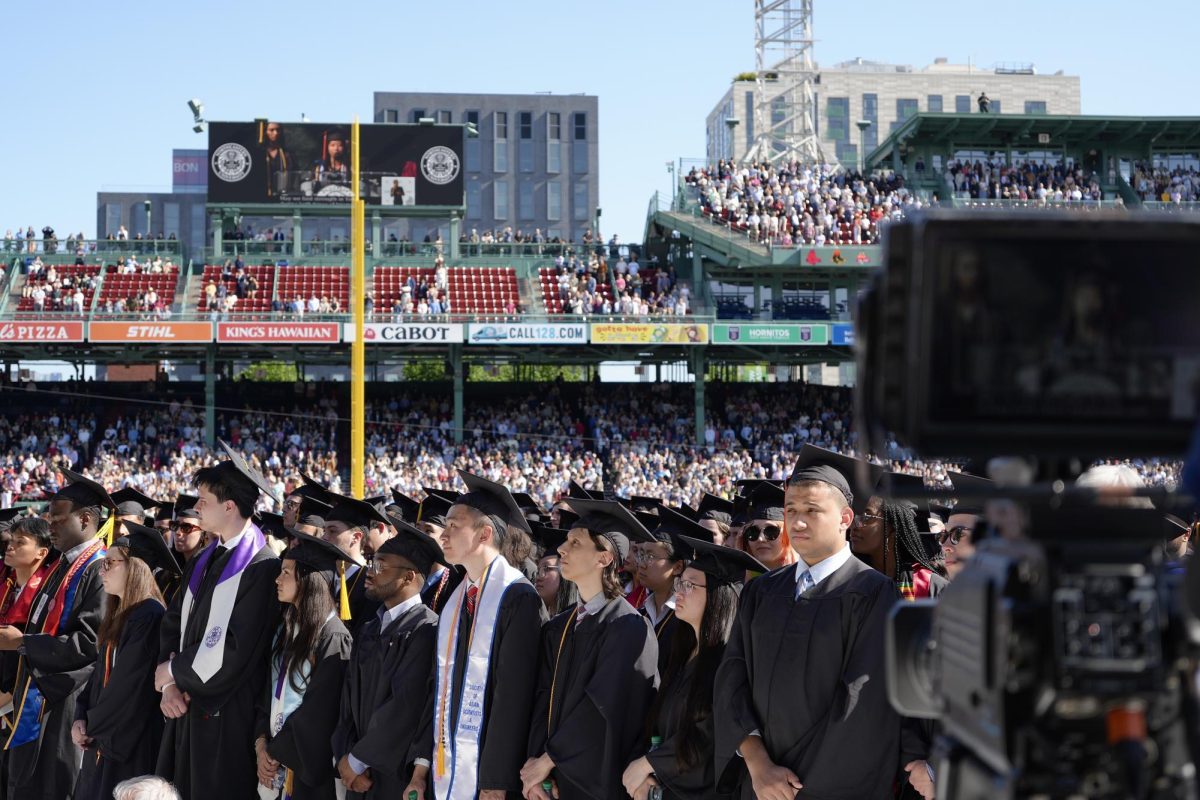In the age of the Internet and an environment of free speech and unabridged press, the average citizen has mastered the art of making something go viral. So far this year, Americans have popularized a teenage cashier at Target, divided the nation over the color of an $80 dress and “broke the Internet” when Kim Kardashian was somehow able to balance a champagne glass on her ass.
This is okay. It is not only acceptable, but amazing that the public is able to bring so much attention to such trivial topics. Twitter users and Reddit trolls control the national conversation. People in their basements and 13-year-olds are able to bring any issue they want to light. So let’s use that power to our advantage and ask ourselves about something that continues to dominate national attention, both on the campaign trail and on our news channels: same-sex marriage.
Those who say that same-sex marriage is not a political issue are wrong. Same-sex marriage is a political issue as long as a marriage license is a legal document. However, this is not to say that it should be. It is not okay for us to ask who a bride is marrying before we consent to make her wedding cake, and it is not okay for us to demand heterosexuality from two people before they’re allowed to kiss in public.
As a nation, we finally realized that asking our soldiers who they like to sleep with was inappropriate and irrelevant, so why does this topic take up such a large seat on the national stage? Why, when President Barack Obama announced his support for same-sex marriage, was he the shining beacon of hope for LGBT individuals across the country?
Many people fear that once nationwide same-sex marriage is achieved, people will stop paying attention to the LGBT struggle. As the 2016 election season looms over us, we should challenge ourselves and our peers not to allow this to happen. Candidates who announce that they have no problem with people of the same gender marrying seem to appeal more and more to single-issue voters. But in reality, same-sex marriage is not a single issue. It represents a slew of issues that, truthfully, are everyone’s problems.
In addition to the social equality and legitimization of LGBT sexuality and gender expression, the fight for equal marriage rights is for much-needed benefits – health care, Social Security, tax rights, medical visitation and child care among them.
Same-sex marriage is not merely a topic for gay and lesbian individuals. It can pave the way for an inclusive discussion of other current issues, like public health care and education.
According to the National LGBT Health Education Center, part of the Boston-based Fenway Institute, men who have sex with other men currently account for 64 percent of new cases of HIV and are at high risk for other STDs. Lesbians are less likely to get preventive services for cancer, and they’re more likely to be overweight or obese, while transgender people have a high prevalence of HIV and other STDs, mental health issues and suicide but are less likely to have health insurance than their cisgender peers.
Similarly, LGBT issues tie in with a national discussion about public education. Queer youth comprise one of the nation’s most at-risk populations. According to the Institute, these children are two to three times more likely to attempt suicide than their heterosexual and/or cisgender peers. MassEquality, an LGBT advocacy group, estimated in 2012 that 20 to 40 percent of the state’s homeless youth population is queer. Are these children receiving a proper education?
As young voters in one of the most progressive cities in the US, we must recognize that it is possible to care about same-sex marriage as we care about the issues that are inherently tied to it. Let’s decide what core concepts will drive a political campaign and let’s demand candidates acknowledge the problems that our community collectively faces.
Let’s talk about a candidate’s commitment to green energy, their plan to reform the American public education system and their stance on public health care. We, as a nation, can prove our power to change how we address such debates as early as next year.
Photo courtesy Elvert Barnes, Creative Commons.









